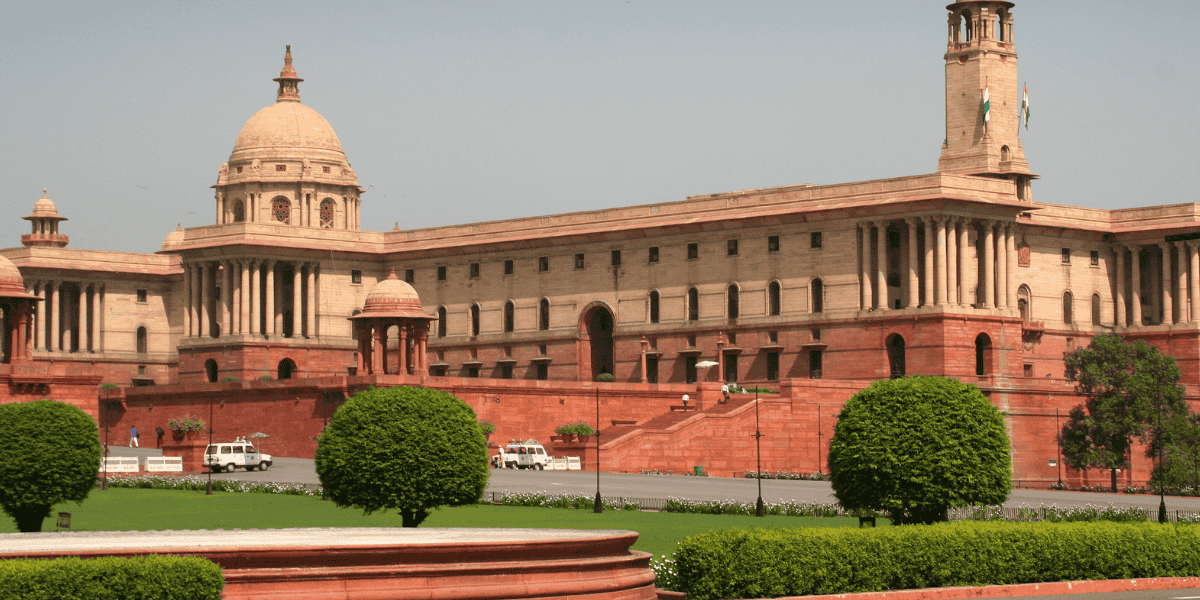India’s Press Information Bureau has issued a statement from the Ministry of Finance regarding the recommendations from the GST Council’s 54th meeting, which took place on 9 September 2024.
The 54th GST Council met under the Chairpersonship of Union Minister for Finance & Corporate Affairs Nirmala Sitharaman in New Delhi.
The meeting was also attended by Union Minister of State for Finance Shri Pankaj Chaudhary, Chief Ministers of Goa and Meghalaya; Deputy Chief Ministers of Arunachal Pradesh, Bihar, Madhya Pradesh, and Telangana; besides Finance Ministers of States & UTs (with legislature) and senior officers of the Ministry of Finance & States/ UTs.
The GST Council inter-alia made the following recommendations relating to changes in GST tax rates, provide relief to individuals, measures for facilitation of trade and measures for streamlining compliances in GST.
Changes/Clarifications in GST Tax Rates:
GOODS
- Namkeens and Extruded/Expanded Savoury food products
The GST rate of extruded or expanded products, savoury or salted (other than un-fried or un-cooked snack pellets, by whatever name called, manufactured through process of extrusion), falling under HS 1905 90 30 to be reduced from 18% to 12% at par with namkeens, bhujia, mixture, chabena (pre-packaged and labelled) and similar edible preparations in ready for consumption form which are classifiable under HS 2106 90. The GST rate of 5% will continue on un-fried or un-cooked snack pellets, by whatever name called, manufactured through the process of extrusion.
To also clarify that the reduced GST rate of 12% on extruded or expanded products, savoury or salted (other than un-fried or un-cooked snack pellets, by whatever name called, manufactured through process of extrusion), falling under HS 1905 90 30 is applicable prospectively.
- Cancer Drugs
The GST rate on cancer drugs namely, Trastuzumab Deruxtecan, Osimertinib and Durvalumab to be reduced from 12% to 5%.
- Metal Scrap
Reverse Charge Mechanism (RCM) to be introduced on supply of metal scrap by unregistered person to registered person provided that the supplier shall take registration as and when it crosses threshold limit and the recipient who is liable to pay under RCM shall pay tax even if supplier is under threshold.
A TDS of 2% will be applicable on supply of metal scrap by registered person in B to B supply.
- Roof Mounted Package Unit (RMPU) Air Conditioning Machines for Railways
To clarify that Roof Mounted Package Unit (RMPU) Air Conditioning Machines for Railways would be classified under HSN 8415 attracting a GST rate of 28%.
- Car and Motorcycle seats
To clarify that car seats are classifiable under 9401 and attract a GST rate of 18%.
GST rate on car seats classifiable under 9401 to be increased from 18% to 28%. This uniform rate of 28% will be applicable prospectively for car seats of motor cars in order to bring parity with seats of motorcycles which already attract a GST rate of 28%.
SERVICES
Life and Health insurance
GST Council recommended to constitute a Group of Ministers (GoM) to holistically look into the issues pertaining to GST on life insurance and health insurance. The GoM members are Bihar, UP, West Bengal, Karnataka, Kerala, Rajasthan, Andhra Pradesh, Meghalaya, Goa, Telangana, Tamil Nadu, Punjab, and Gujarat. The GoM is to submit the report by the end of October 2024.
Transport of passengers by helicopters
To notify GST @ 5% on the transport of passengers by helicopters on seat share basis and to regularise the GST for past periods on ‘as is where is’ basis. To also clarify that charter of helicopters will continue to attract 18% GST.
Flying training courses
To clarify by way of a circular that the approved flying training courses conducted by DGCA approved Flying Training Organisations (FTOs) are exempt from the levy of GST.
Supply of research and development services
The GST Council recommended to exempt supply of research and development services by a Government Entity; or a research association, university, college or other institution, notified under clauses (ii) or (iii) of sub-section (1) of section 35 of the Income Tax Act, 1961 using Government or private grants.
Past demands to be regularised on ‘as is where is’ basis.
Preferential Location Charges (PLC)
To clarify that location charges or Preferential Location Charges (PLC) paid along with the consideration for the construction services of residential/commercial/industrial complex before issuance of completion certificate forms part of composite supply where supply of construction services is the main service and PLC is naturally bundled with it and are eligible for same tax treatment as the main supply that is, construction service.
Affiliation services
(i) To clarify that affiliation services provided by educational boards like CBSE are taxable. However, to exempt affiliation services provided by State/Central educational boards, educational councils and other similarly placed bodies to Government Schools prospectively. The issue for the past period between 01.07.2017 to 17.06.2021 to be regularised on ‘as is where is’ basis.
(ii) To clarify by way of circular that the affiliation services provided by universities to their constituent colleges are not covered within the ambit of exemptions provided to educational institutions in the notification No. 12/2017-CT(R) dated 28.06.2017 and GST at the rate of 18% is applicable on the affiliation services provided by the universities.
Import of service by branch Office
To exempt import of services by an establishment of a foreign airlines company from a related person or any of its establishments outside India, when made without consideration. The council also recommended to regularise the past period on ‘as is where is’ basis.
Renting of commercial property
To bring renting of commercial property by an unregistered person to a registered person under Reverse Charge Mechanism (RCM) to prevent revenue leakage.
Ancillary/intermediate services are provided by GTA
To clarify that when ancillary/intermediate services are provided by GTA in the course of transportation of goods by road and GTA also issues consignment note, the service will constitute a composite supply and all such ancillary/intermediate services like loading/unloading, packing/unpacking, transshipment, temporary warehousing etc. will be treated as part of the composite supply. If such services are not provided in the course of transportation of goods and invoiced separately, then these services will not be treated as composite supply of transport of goods.
Other changes
- To regularise the GST liability for the past period prior to 01.10.2021 on ‘as is where is’ basis, where the film distributor or sub-distributor acts on a principal basis to acquire and distribute films.
- To exempt supply of services such as application fees for providing electricity connection, rental charges against electricity metre, testing fees for metres/ transformers/capacitors, labour charges from customers for shifting of metres/service lines, charges for duplicate bills etc. which are incidental, ancillary or integral to the supply of transmission and distribution of electricity by transmission and distribution utilities to their consumers, when provided as a composite supply. GST for the past period to be regularised on ‘as is where is’ basis.
Measures for facilitation of trade:
Procedure and conditions for waiver of interest or penalty or both, in respect of tax demands under section 73 of CGST Act, 2017 for FYs 2017-18, 2018-19 and 2019-20 as per section 128A of CGST Act, 2017:
The GST Council recommended insertion of rule 164 in CGST Rules, 2017, along with certain Forms, providing for the procedure and conditions for availment of benefit of waiver of interest or penalty or both, relating to tax demands under section 73 of CGST Act, pertaining to FYs 2017-18, 2018-19 and 2019-20, as per section 128A of CGST Act. The Council also recommended to notify under sub-section (1) of section 128A of CGST Act, 31.03.2025 as the date on or before which the payment of tax may be made by the registered persons, to avail the said benefit as per section 128A of the CGST Act. The Council also recommended the issuance of a circular to clarify various issues related to availment of waiver of interest or penalty or both as per section 128A of CGST Act. The Council also recommended that section 146 of Finance (No. 2) Act, 2024, which provides for insertion of section 128A in CGST Act, 2017, may be notified with effect from 01.11.2024.
Providing a mechanism for implementation of newly inserted sub-section (5) and sub-section (6) in section 16 of CGST Act, 2017:
The GST Council recommended that section 118 and 150 of the Finance (No. 2) Act, 2024, which provides for insertion of sub-section (5) and sub-section (6) in section 16 of CGST Act, 2017 retrospectively with effect from 01.07.2017, may be notified at the earliest.
The Council also recommended that a special procedure for rectification of orders may be notified under section 148 of the CGST Act, to be followed by the class of taxable persons, against whom any order under section 73 or section 74 or section 107 or section 108 of the CGST Act has been issued confirming demand for wrong availment of input tax credit on account of contravention of provisions of sub-section (4) of section 16 of the CGST Act, but where such input tax credit is now available as per the provisions of sub-section (5) or sub-section (6) of section 16 of the CGST Act, and where appeal against the said order has not been filed. The Council also recommended issuance of a circular to clarify the procedure and various issues related to implementation of the said provisions of sub-section (5) and sub-section (6) of section 16 of CGST Act, 2017.
Amendments in rule 89 and rule 96 of CGST Rules, 2017 and to provide clarification in respect of IGST refunds on exports where benefit of concessional/ exemption notifications specified under rule 96(10) of CGST Rules, 2017 has been availed on the inputs:
The GST Council recommended to clarify that where the inputs were initially imported without payment of integrated tax and compensation cess by availing benefits under Notification No. 78/2017-Customs dated 13.10.2017 or Notification No. 79/2017-Customs dated 13.10.2017, but IGST and compensation cess on such imported inputs are subsequently paid, along with applicable interest, and the Bill of Entry in respect of the import of the said inputs is got reassessed through the jurisdictional Customs authorities to this effect, then the IGST paid on exports, refunded to the said exporter shall not be considered to be in contravention of provisions of sub-rule (10) of rule 96 of CGST Rules.
Further, considering the difficulty being faced by the exporters due to restriction in respect of refund on exports, imposed vide rule 96(10), rule 89(4A) & rule 89(4B) of CGST Rules, 2017, in cases where benefit of the specified concessional/ exemption notifications is availed on the inputs, the Council recommended to prospectively omit rule 96(10), rule 89(4A) & rule 89(4B) from CGST Rules, 2017. This will simplify and expedite the procedure for refunds in respect of such exports.
Issuance of clarifications through the circulars to remove ambiguity and legal disputes in certain issues:
The GST Council recommended issuance of circulars to provide clarity and to remove doubts and ambiguities arising in the following issues due to varied interpretations by the field formations:
- Clarification on the Place of Supply of advertising services provided by Indian advertising companies to foreign entities.
- Clarification regarding availability of Input Tax Credit on demo vehicles by the dealers of the vehicle manufacturers.
- Clarification on Place of Supply of data hosting services provided by service providers located in India to cloud computing service providers located outside India.
The Council also recommended amendments in some other provisions of CGST Rules, 2017.
Other measures:
- B2C E-invoicing:
The GST Council recommended roll out of a pilot for B2C e-Invoicing, following the successful implementation of e-invoicing in the B2B sector. The Council recognized potential benefits of e-invoicing in retail, such as improved business efficiency, environmentally friendly, cost efficiency to the business, etc.
It would also provide an opportunity to the retail customers to verify the reporting of the invoice in the GST return. The pilot will be rolled out on voluntary basis in selected Sectors and States.
- Invoice Management System and new ledgers:
The Council also took note of the agenda on the enhancements being made to the existing GST return architecture. These enhancements include the introduction of a Reverse Charge Mechanism (RCM) ledger, an Input Tax Credit Reclaim ledger and an Invoice Management System (IMS). Taxpayers would be given the opportunity to declare their opening balance for these ledgers by 31st October 2024.
IMS will allow the taxpayers to accept, reject, or to keep the invoices pending for the purpose of availment of Input Tax Credit. This will be an optional facility for taxpayers to reduce errors in claiming input tax credit and improve reconciliation. This is expected to reduce notices issued on account of ITC mismatch in the returns.















